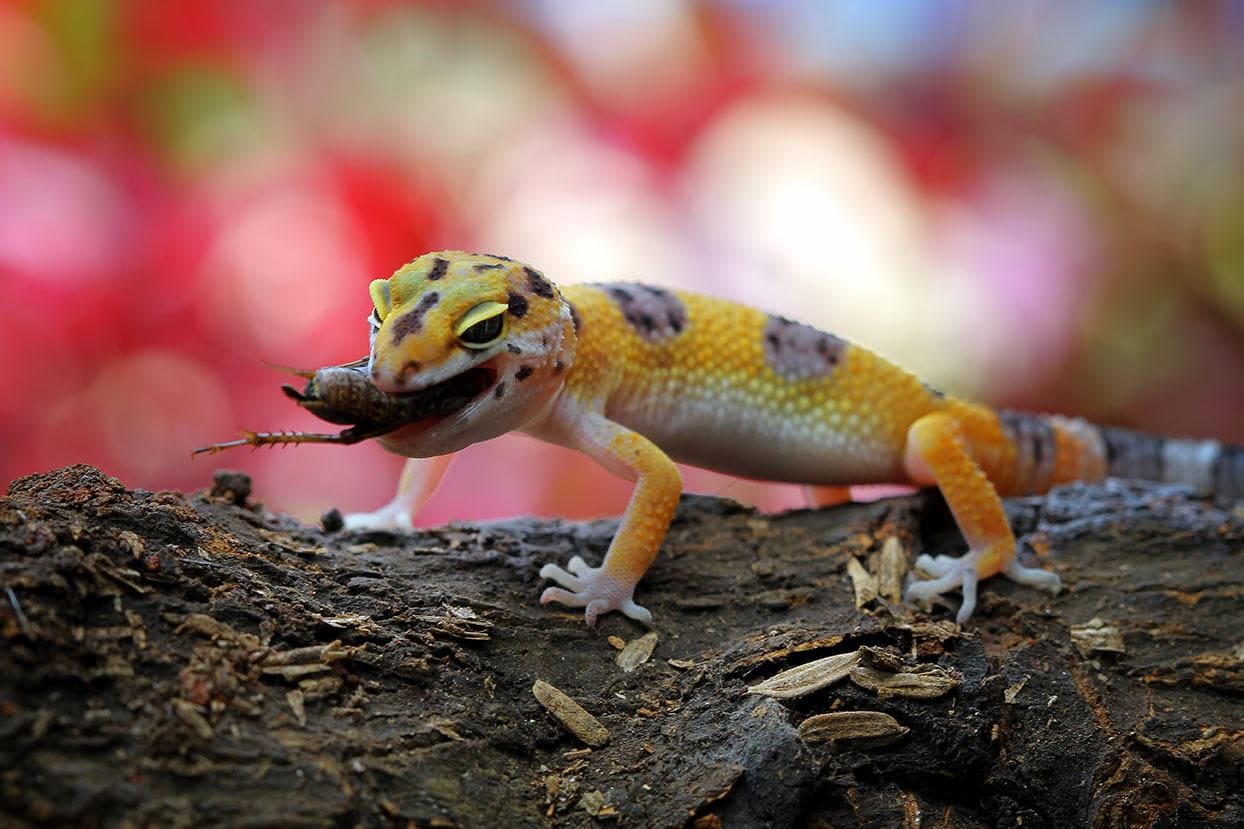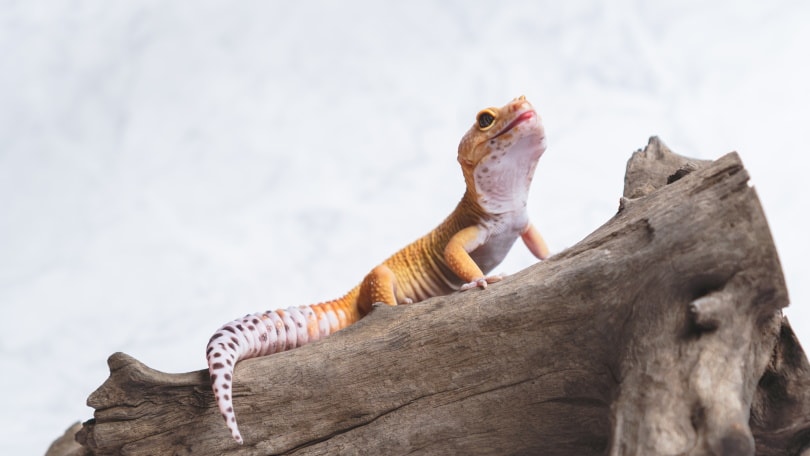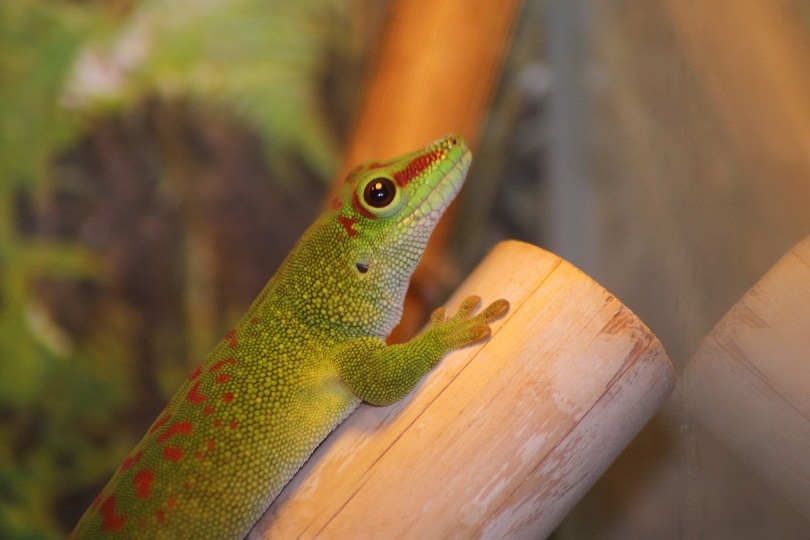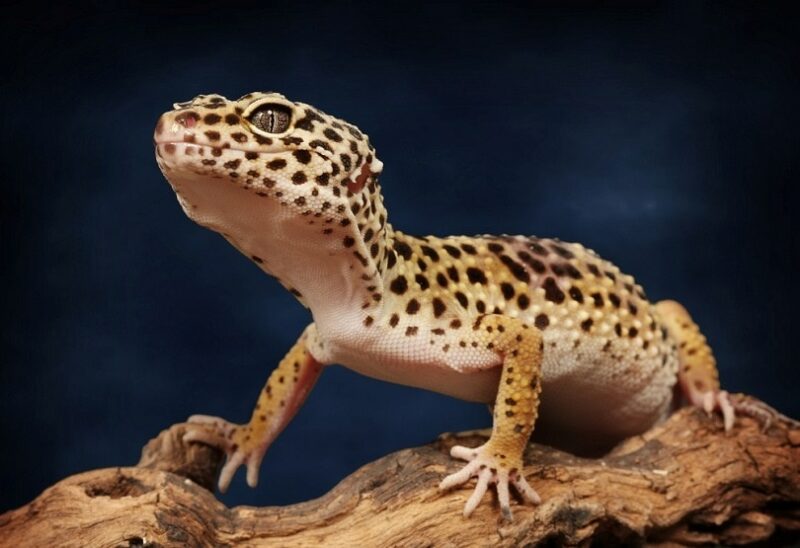
Geckos, along with many other reptiles, are becoming increasingly popular as pets. They have relatively long lifespans, are fun to watch, and are easy to maintain.
However, many people are unsure about what they should feed their new pet, and most people would like to provide a diet similar to what their gecko would find in the wild. As you may have guessed, geckos primarily depend on insects. If you are thinking about getting a gecko for your home and want to feed it properly, keep reading while we look at what these fascinating animals eat in the wild and what you should feed them in captivity to help you make an educated purchase.
Gecko Backgrounder

Geckos are small lizards that you can find in warm climates worldwide. Most prefer temperatures between 72 and 78 degrees Fahrenheit, and some can grow to 24 inches or more, while others stay small and will be less than 1 inch long fully grown. In total, there are more than 1,500 species of gecko. These reptiles have excellent vision and can sense color better than we do, but they don’t have eyelids and need to lick their eyes to remove debris. Most are nocturnal, but some species are active during the day, and most can lose their tail if attacked. Tarantulas, snakes, and birds are some of the gecko’s primary predators.
What Do Geckos Eat in the Wild?
No matter what species of gecko you have, your pet is an insectivore. In the wild, these reptiles will eat nearly any insect they can find, and their diet will primarily depend on what insects exist in the same part of the world as your gecko’s natural environment. Some of their favorite foods are crickets, spiders, moths, all types of worms, and grasshoppers. They may even eat small rodents if insects are scarce.
What Do Geckos Eat in Captivity?

Your gecko will likely eat mainly crickets with some mealworms and superworms thrown in for variety in captivity. Crickets are easy to find at your local pet store and are usually inexpensive. You can also raise them in the garage or basement to maintain a large supply, but they are quite noisy and smell bad. Mealworms and superworms are also easy to find, and you can usually purchase these freeze-dried from online pet supply stores like Chewy. Wax worms are another easy-to-find food that your gecko will love, but this food is high in fat, so it’s better as a treat.
Size Matters
When feeding your gecko, the size of the food is important. Most owners recommend providing food no larger than the width of your gecko’s mouth to avoid it from becoming lodged in the throat. Larger geckos may eat pinky mice which can help them get more calcium in their diet.
Choose Live Food
Live food is best and will trigger your pet’s natural hunting instincts, which will make its meal more satisfying and will also help your pet get some exercise.
Gut Load the Insects Before Feeding Them
It’s important to gut load your insects first to make sure your pet gets the best possible nutrition. Gut loading is the process of feeding the insects a high-quality meal of fruits and vegetables for at least 24 hours before feeding them to your pet. This process allows your pet to get most of the vitamins and minerals consumed by the insects.
Supplements
Your gecko will also need to take a calcium supplement to help prevent metabolic bone disease (MBD), a serious condition that occurs when your captive reptile doesn’t get enough calcium. It results in soft, brittle bones that can break easily. The soft bones can also restrict movement and may give the body a flattened appearance. Dusting your insects with a calcium supplement will help make sure your pet has the nutrients it needs for strong bones. If you are using ultraviolet light in your habitat, the calcium supplement is enough, but we recommend calcium and vitamin D3 supplements if there is no UVB lighting.

How Much Should I Feed My Gecko?

The feeding amount will depend largely on the size and type of gecko you have, but most popular breeds will eat 5–10 gut-loaded and supplement-dusted crickets every other day, while baby geckos can eat up to 20 small crickets each day as they are developing. Crickets are usually a good size for most geckos, and their jumping around will help your pet stay active, but the downside is that the crickets can escape or be difficult to catch. If your gecko is getting older, it might prefer a diet of mealworms instead.
What to Avoid
Avoid feeding food that is too large for your cricket to eat and only give fatty insects like the waxworm to your pet as an occasional treat or coax it into eating its food. While it may be tempting to feed your pet insects that you catch around the house, doing so can transfer dangerous parasites and bacteria to your pet that can make it sick. We recommend feeding only captive-bred insects to keep your pet healthy.

Summary
While geckos eat a wide variety of insects in the wild, they will primarily eat crickets in captivity. Other foods like mealworms and superworms can help add variety to your pet’s diet but are often sold only in a freeze-dried state, and we recommend serving live food, when possible, to keep your pet active. Calcium supplementation is critical to keep your pet’s bones strong, and it may also require vitamin D3 if you are not using UVB lighting. The gecko diet may sound complex but is very easy once you start doing it.
We hope you have enjoyed reading over this guide, and it has helped answer your questions.
See also:
- Can Leopard Geckos Eat Hornworms? Vet-Reviewed Facts & FAQs
- How To Tell If Your Leopard Gecko Is Happy (5 Signs to Look For)
- How Long Can Leopard Geckos Go Without Food?
Featured Image Credit: Kurit afshen, Shutterstock







